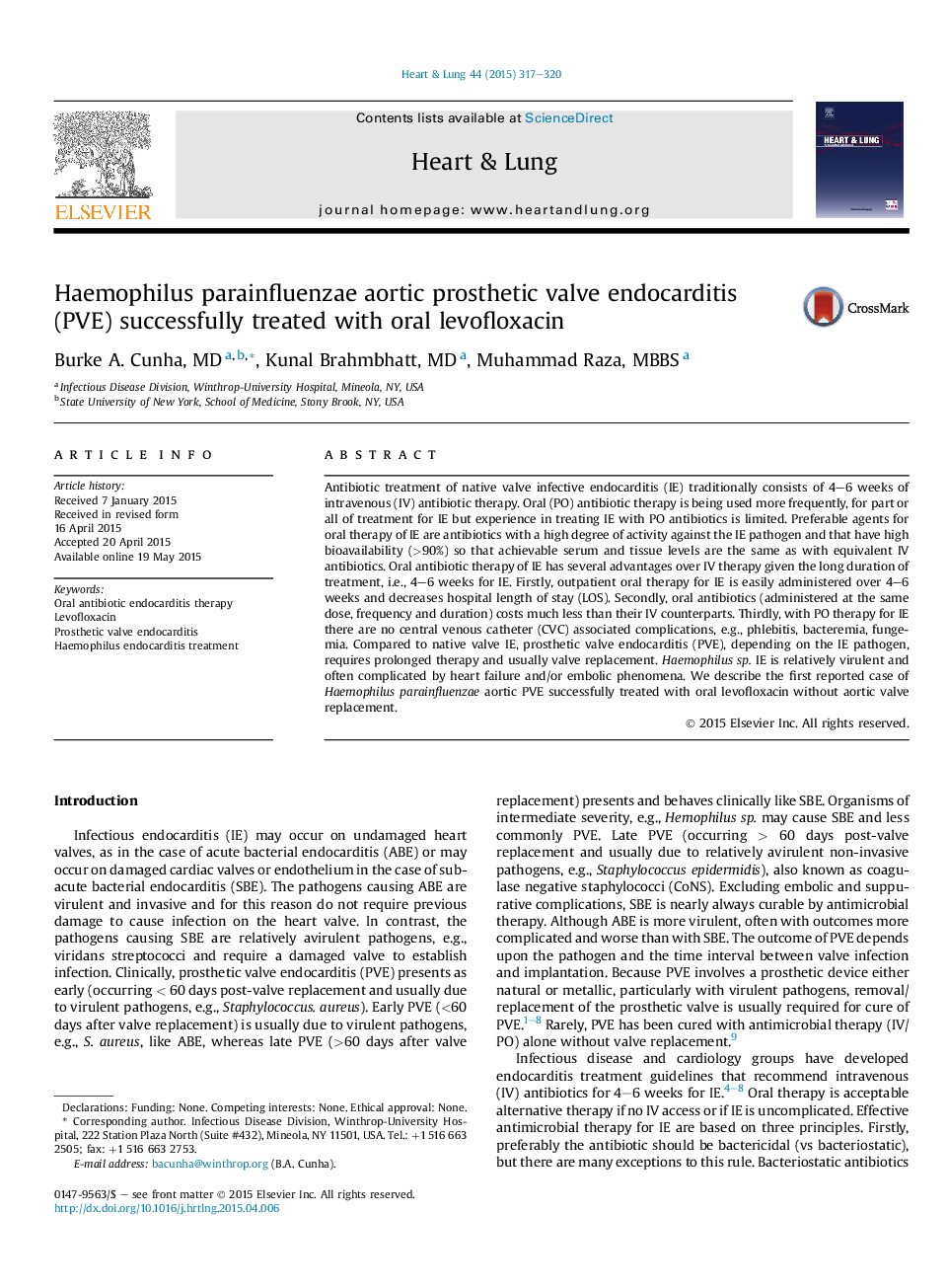| Article ID | Journal | Published Year | Pages | File Type |
|---|---|---|---|---|
| 2651738 | Heart & Lung: The Journal of Acute and Critical Care | 2015 | 4 Pages |
Abstract
Antibiotic treatment of native valve infective endocarditis (IE) traditionally consists of 4-6 weeks of intravenous (IV) antibiotic therapy. Oral (PO) antibiotic therapy is being used more frequently, for part or all of treatment for IE but experience in treating IE with PO antibiotics is limited. Preferable agents for oral therapy of IE are antibiotics with a high degree of activity against the IE pathogen and that have high bioavailability (>90%) so that achievable serum and tissue levels are the same as with equivalent IV antibiotics. Oral antibiotic therapy of IE has several advantages over IV therapy given the long duration of treatment, i.e., 4-6 weeks for IE. Firstly, outpatient oral therapy for IE is easily administered over 4-6 weeks and decreases hospital length of stay (LOS). Secondly, oral antibiotics (administered at the same dose, frequency and duration) costs much less than their IV counterparts. Thirdly, with PO therapy for IE there are no central venous catheter (CVC) associated complications, e.g., phlebitis, bacteremia, fungemia. Compared to native valve IE, prosthetic valve endocarditis (PVE), depending on the IE pathogen, requires prolonged therapy and usually valve replacement. Haemophilus sp. IE is relatively virulent and often complicated by heart failure and/or embolic phenomena. We describe the first reported case of Haemophilus parainfluenzae aortic PVE successfully treated with oral levofloxacin without aortic valve replacement.
Related Topics
Health Sciences
Medicine and Dentistry
Cardiology and Cardiovascular Medicine
Authors
Burke A. MD, Kunal MD, Muhammad MBBS,
